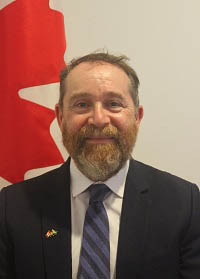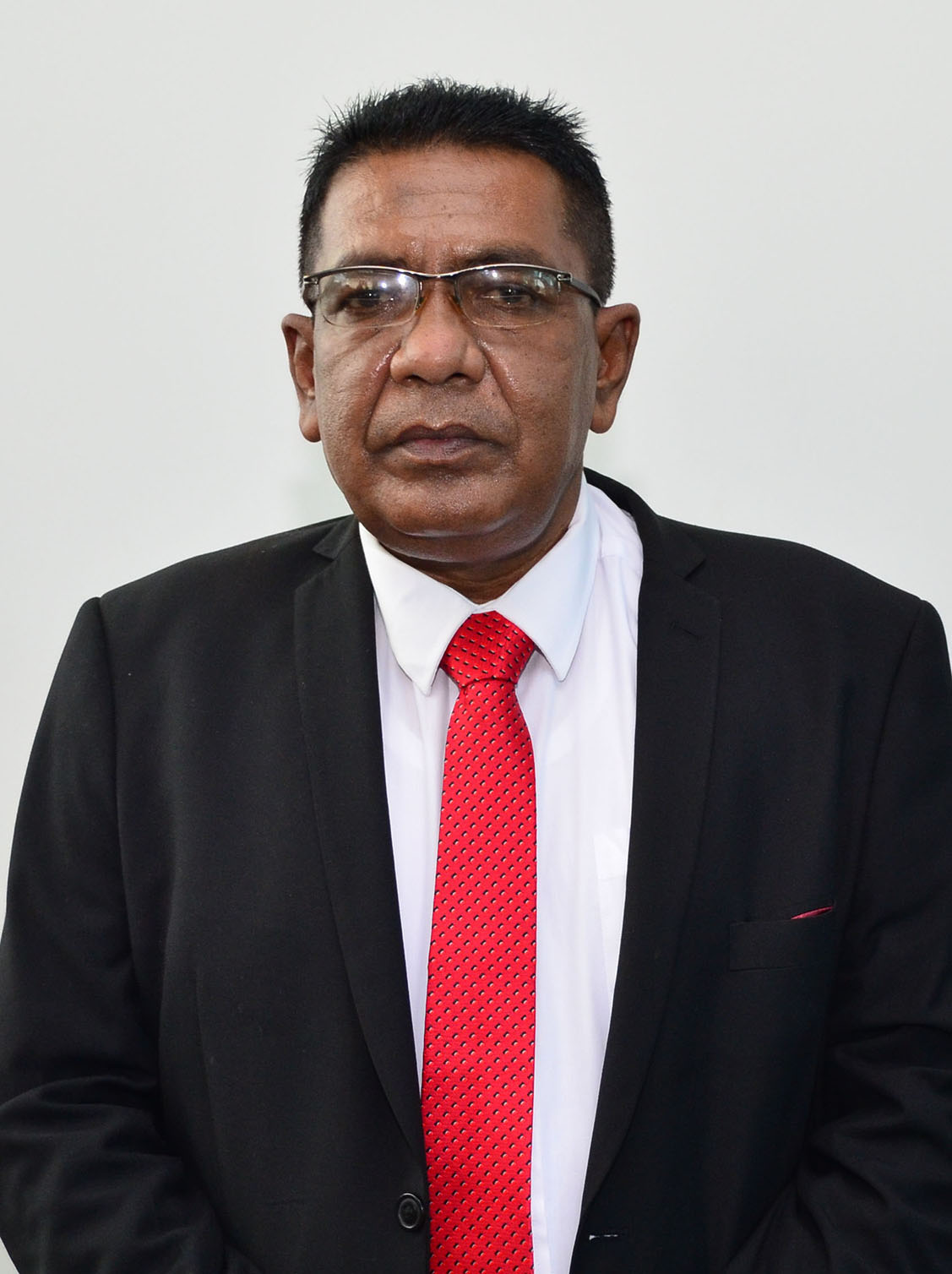With Guyana’s new-found oil wealth singling the country out as a potential haven for both foreign and local investment, investors from various countries are homing in on what they see as opportunities to realise lucrative returns from possible business opportunities here. Apart from potential investors who have been showing up to see for themselves what investment opportunities might attend the anticipated rapid expansion of the country’s economy, diplomatic missions based in Georgetown have also been busy serving as investment ‘scouts’ for their respective home countries.
Canada, which has had diplomatic ties with Guyana since 1966 is one such country and earlier this week the state-run Department of Public Information (DPI) reported on a démarche made on Guyana’s Agriculture Minister, Zulfikar Mustapha, by Canada’s High Commissioner to Guyana, Mark Berman, to discuss what a media report described as “the many lucrative opportunities in this [agriculture] sector” for international investors.

Canadian High Commissioner Mark Berman
With an eye on the promotion of the incumbent PPP/C administration as the catalyst for the acceleration of the drive to attract overseas investors, Mustapha was quoted as saying during his exchange with the Canadian envoy that under the PPP/C administration, the country was “seeing more persons who would’ve called it a day prior to August 2020, returning to the agriculture sector.” Guyana, he added, was currently “experiencing increased levels of production and productivity across the [agriculture] sector,” adding that, simultaneously, the sector was experiencing “a noticeable amount of growth.”
Setting aside the global food security concerns with which both rich and poor countries are currently preoccupied, Canada’s interest in Guyana’s agricultural sector hinges on the high demand in parts of that country for produce cultivated here around Guyanese and other Caribbean people resident there. Up to this time and after a number of stop-start efforts, diplomatic and people-to-people ties between Guyana and Canada have not yielded commensurate returns in terms of trade between the two countries.
State-disseminated information that followed the meeting between the Agriculture Minister and the Canadian envoy dealt primarily with Mustapha’s articulation of the political administration’s vision for the country’s agriculture sector.
“As a government, one of our goals is to make agriculture less labour intensive. Our human capital will remain a key element to agriculture development but we have to ensure we do agriculture in a more diversified, advanced, and technologically-driven way. This is why we are working to construct more agro-processing facilities to make farmers’ produce more value-added, in addition to securing more markets in the process,” Mustapha is quoted as saying.
Of likely interest to both local and foreign investors was the disclosure made by the Agriculture Minister on the issue of land availability. “As investors begin to show interest, we have to make lands available. We have to make the necessary infrastructural adjustments because we are building partnerships. This is why we are currently working to develop the second phase of the Mahaica, Mahaicony, Abary-Agriculture Development Authority [MMA-ADA] Scheme.”
Agriculture is one of the areas in which potential investors have demonstrated some measure of interest in the wake of the post-2015 spotlight shone on Guyana by the country’s oil discoveries, though last year’s post-general elections imbroglio may have, at least temporarily, served to dim investor enthusiasm somewhat.
An indication as to how serious the government is about throwing open the doors to foreign investment in the agricultural sector will emerge from the speed with which the MMA-ADA Scheme, the biggest agricultural development in the country, benefits from the recent promised expansion undertaking.
Mustapha is reported as saying on the back of his recent meeting with the Canadian High Commissioner that the $100 million allocated in this year’s budget to begin work on the upgrading of the Scheme will lead directly to “hundreds or even thousands of acres of land being opened up for agriculture purposes” and to the “building [of] a farm-to-market all-weather road from No. 58 Village, Corentyne to the Canje Creek area.” In the light of the track record of successive political administrations for unrealised investment-related promises, observers may well strike a seeing-is-believing posture in response to Mustapha’s pronouncement.
Official reporting on the meeting between the Minister and the Canadian envoy attributes to the latter the assurance that working with the government to promote the potential of Guyana’s agriculture sector remains a priority for Canada. “Guyana, compared to the rest of the Caribbean, is completely different. You have large areas of arable land and the capacity to produce for much of the Caribbean. We will work with you to promote the agriculture sector. That’s going to be a priority for us. Canada is one of the largest agri-food producers in the world but we also, very much, respect the concept of partnership so that would be the opportunity for Canadian companies to partner with Guyanese companies,” High Commissioner Berman is quoted as saying.
Meanwhile, Berman says that Canada’s interest in the development of Guyana’s agricultural sector “will continue through our Canada Fund for Local Initiatives [CFLI] projects to try and push forward as an initial step in the various areas as well as our development programme.” Funded by the Canadian government, CFLI provides modest funding for allocations for “small-scale, high-impact projects” in more than 120 countries eligible for official development assistance (ODA). The CFLI has an annual programming budget of CDN$16.3 million, with projects averaging CDN$25,000 each which are planned and implemented mainly by local organisations, and are selected and approved by the resident Canadian diplomatic outpost.
The Guyanese Agriculture Minister, meanwhile, who currently serves as the Chairman of the Ministerial Task Force for advancing the agriculture agenda of the region is reported by DPI as saying that the main focus of the task force is to “coordinate activities among CARICOM states and build capacity to produce a document on food security highlighting the strengths and weaknesses of each member state.” Upon finalisation, according to the DPI’s account of what the Guyanese Agriculture Minister had to say, the document will be submitted to CARICOM Heads of Government for implementation.
Picture:






